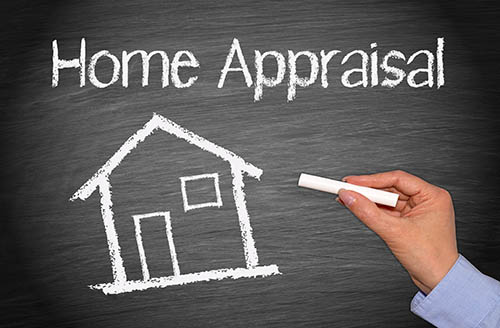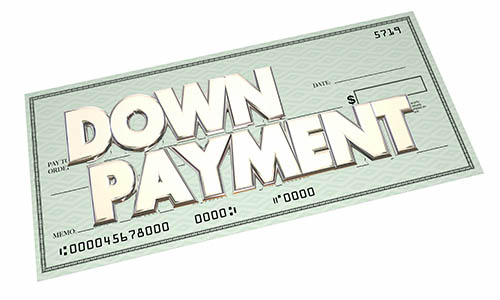 It can be a bit of a surprise if your home turns out to be valued at less than the purchase price offered, but this is the type of thing that can occur in an appraisal situation. While this can change everything from your contract to the amount of your down payment if your home has been appraised at less than you envisioned, here are some options you may want to consider.
It can be a bit of a surprise if your home turns out to be valued at less than the purchase price offered, but this is the type of thing that can occur in an appraisal situation. While this can change everything from your contract to the amount of your down payment if your home has been appraised at less than you envisioned, here are some options you may want to consider.
Review The Appraisal Contingency Clause
If an appraisal contingency clause is built into the terms of your contract, this means that the terms of your contract can be re-evaluated and re-negotiated if an appraisal happens to come up short. While this is meant primarily to protect the homebuyer against a lower appraisal, it doesn’t mean that the terms of a new deal can’t be met for the good of both parties.
Get A Second Appraisal
It’s entirely possible that the initial appraisal is accurate, but it doesn’t necessarily hurt to get a second opinion in the event that the first appraisal seems too low. While you can work in conjunction with your lender to get a second appraisal, you may need to pay for it the second time around in order to get your initial purchasing price. Whether it happens to be good news or bad news, it can be worth the peace of mind to know how to proceed.
Consider A Lower Price
It’s less than ideal when your home is appraised for less than the purchase price, but this doesn’t have to be a deal breaker when it comes to selling it. While you may be able to get away with a higher price for your home in a hot real estate market, if things have cooled off, this can be an important time to re-negotiate the deal you’ve got. If a potential buyer likes your home and has already made an offer, they may be happy to decide on new contract terms.
It can be quite disappointing if your home is appraised at a value that is less than the offer you’ve received, but this doesn’t necessarily mean that you’ll have to put your home back on the market. Whether you and the potential buyer decide to re-negotiate or get a second opinion, there are options that can be beneficial for both parties. If you’re currently going through the appraisal process, you may want to contact your local real estate professional for more information.
 It’s often the case that people will opt to postpone home ownership until the best rates are available or it’s a more stable investment, but in an ever-shifting market it may not be the best decision to put such a sizeable investment off. If you’re wondering whether or not you should put off investing in a home, here are some reasons you may want to start putting your time into searching for a home.
It’s often the case that people will opt to postpone home ownership until the best rates are available or it’s a more stable investment, but in an ever-shifting market it may not be the best decision to put such a sizeable investment off. If you’re wondering whether or not you should put off investing in a home, here are some reasons you may want to start putting your time into searching for a home. Buying a home is an ideal investment for many people because not only is it a place that belongs to them, it can also be very beneficial financially. While you may be strongly considering buying a home for these reasons, it’s also important to be in good financial health so that your ideal home purchase is within reach. If you’re currently perusing the market for prospects, here are some reasons you should pay down debt before taking the leap into home ownership.
Buying a home is an ideal investment for many people because not only is it a place that belongs to them, it can also be very beneficial financially. While you may be strongly considering buying a home for these reasons, it’s also important to be in good financial health so that your ideal home purchase is within reach. If you’re currently perusing the market for prospects, here are some reasons you should pay down debt before taking the leap into home ownership. With approximately one million people having purchased vacation homes in the last year, this type of residence is gaining popularity for those who are interested in a home in a beach setting or a vacation hot spot. However, while a second home can seem like a great purchase and solid investment opportunity, there are different requirements that go into this type of purchase. If you’re considering a vacation home, you may want to be aware of the following financial factors.
With approximately one million people having purchased vacation homes in the last year, this type of residence is gaining popularity for those who are interested in a home in a beach setting or a vacation hot spot. However, while a second home can seem like a great purchase and solid investment opportunity, there are different requirements that go into this type of purchase. If you’re considering a vacation home, you may want to be aware of the following financial factors. There are few things more exciting than finding your ideal home, but with the rising cost of housing, a person’s dream home can often come with a very high purchase price. If you’re wondering how much home you can truly afford and how your cost of living will fare for your mortgage approval, here are some of the details on what you can expect when it comes to finding a home at an affordable price.
There are few things more exciting than finding your ideal home, but with the rising cost of housing, a person’s dream home can often come with a very high purchase price. If you’re wondering how much home you can truly afford and how your cost of living will fare for your mortgage approval, here are some of the details on what you can expect when it comes to finding a home at an affordable price. If you’re just getting into the real estate market, you may have heard that 20% down is the ideal percentage in order to lower your monthly payments and get your mortgage application approved. However, while 20% is often suggested, many people struggle to come up with this amount of money. If you’re staving off home ownership, here are some reasons you may not need to hold off as you long as you thought.
If you’re just getting into the real estate market, you may have heard that 20% down is the ideal percentage in order to lower your monthly payments and get your mortgage application approved. However, while 20% is often suggested, many people struggle to come up with this amount of money. If you’re staving off home ownership, here are some reasons you may not need to hold off as you long as you thought.